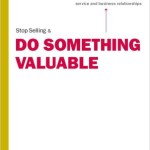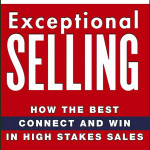What Do Blog Visitors Want?

“What do interviewers want?” asks John Kador in “201 Best Questions to Ask on Your Interview”. Ideal qualities for job candidates fall into four main categories, Kador explains:
- Thinking
- Planning
- Interacting
- Motivation
Business blogs, I’m fond of saying in corporate blogging training classes, are nothing more than extended interviews. Just as in a face-to-face job interview, searchers who read your blog evaluate the content, judging whether you’re a good fit for them. And those visitors, I’m convinced, are “testing” your company or practice for the same four ideal qualities job interviewers use:
Thinking:
Can you (the “candidate” in this scenario) quickly and effectively solve challenging problems?
Kador advises candidates to be prepared to demonstrate past successes; bloggers should use testimonials and case studies.
Planning:
Can you plan projects without missing deadlines, executing with precision?
Interacting:
Can you demonstrate genuine support and concern and be persuasive in a low-key manner? Whatever your business or profession, there’s no end to the technical information available to consumers on the Internet. Our job then, as business blog content writers, becomes to help readers absorb, buy into, and use that information.
Motivation:
Will you be flexible and frequently suggest improvements?
The overriding message a successful interviewee will convey to a prospective employer is the same message business owners and professionals must convey to their prospective clients: “I understand the challenges of the job, and I have the experience to take them on. I would very much like to start doing this important work.”

 “You can’t open a magazine or newspaper without seeing a recap,”
“You can’t open a magazine or newspaper without seeing a recap,”  While trying on clothes at a couple of new shops in Fishers and Carmel, I couldn’t help thinking about a blog post I’d written almost six years ago about the Goodwill Guy and Clothes You Shouldn’t Wear.
While trying on clothes at a couple of new shops in Fishers and Carmel, I couldn’t help thinking about a blog post I’d written almost six years ago about the Goodwill Guy and Clothes You Shouldn’t Wear. for guidance on best practices. Many of the authors’ “tips and tricks to maximize your impact” will never go out of style. Here are just three examples:
for guidance on best practices. Many of the authors’ “tips and tricks to maximize your impact” will never go out of style. Here are just three examples: Understanding what types of searchers your business is likely to attract can be very important in keyword selection, Matt Bailey explains in
Understanding what types of searchers your business is likely to attract can be very important in keyword selection, Matt Bailey explains in  together of articles from many different only marketing experts.
together of articles from many different only marketing experts. “Tell and sell tradition marketing is dead,” according to
“Tell and sell tradition marketing is dead,” according to  push customers, nor do they have to protect themselves from us.”
push customers, nor do they have to protect themselves from us.”
Follow us online!